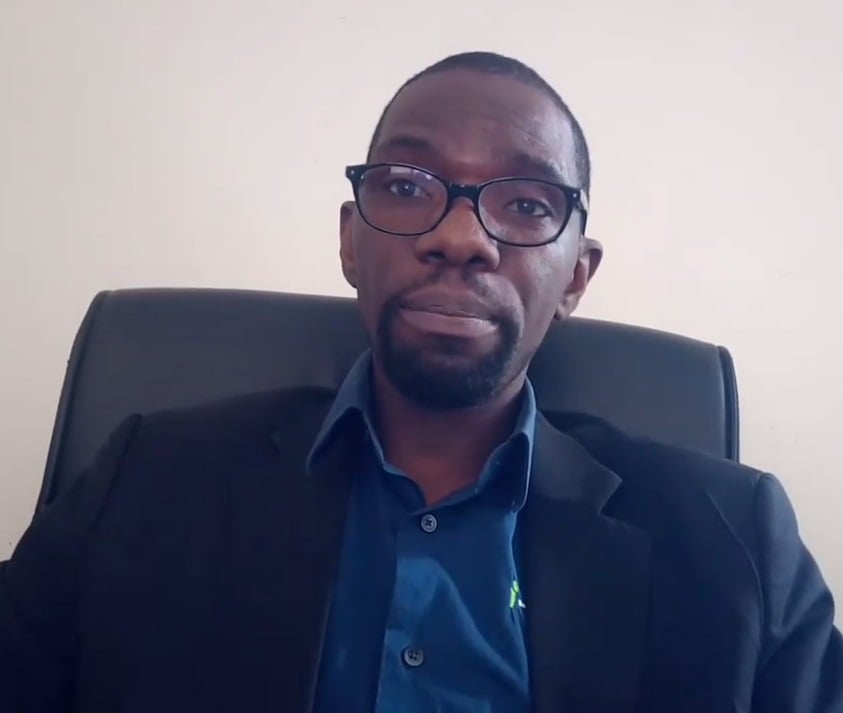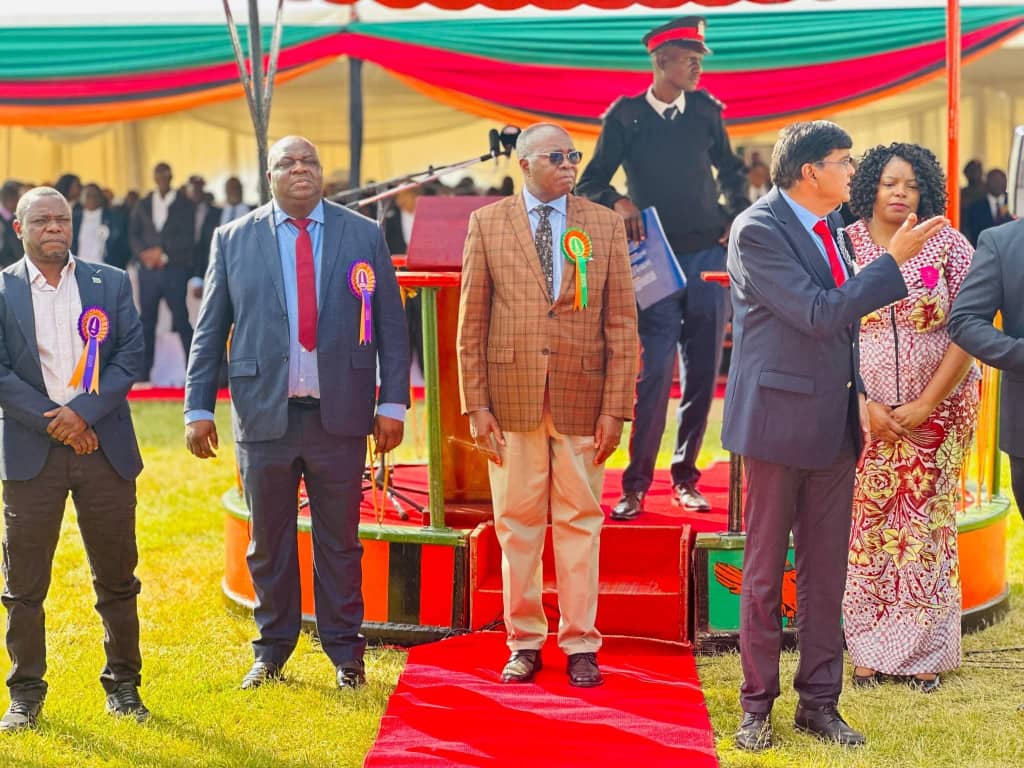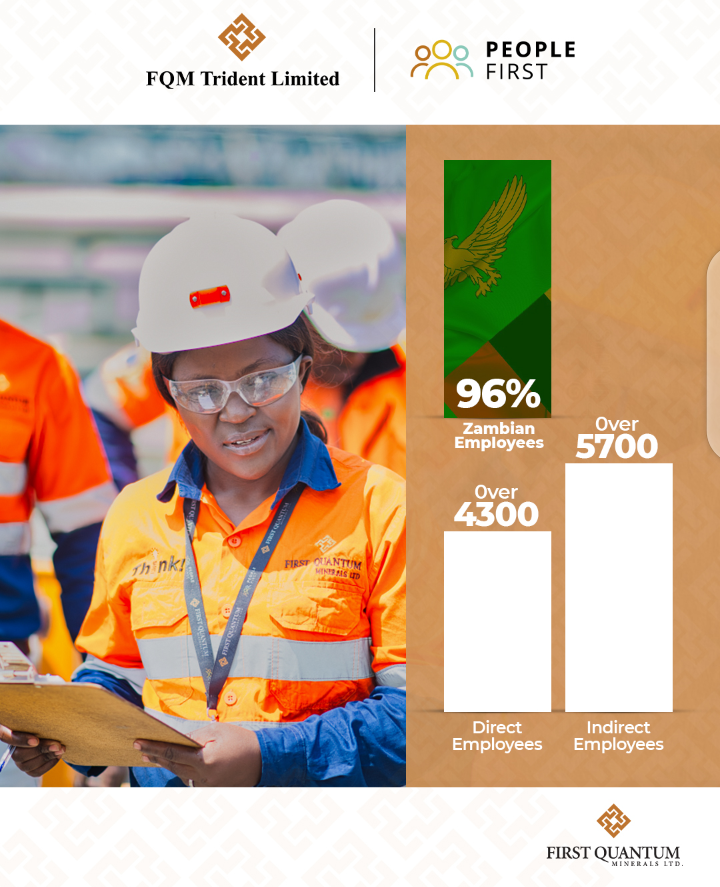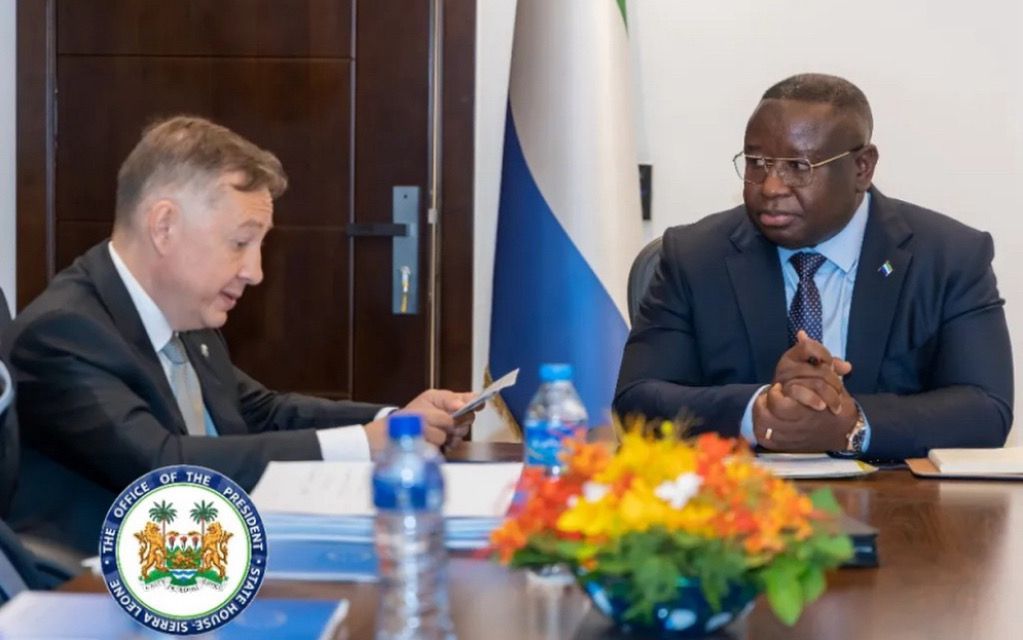Social Economist and Marketer Kelvin Chisanga say copper’s good performance on the international market signals positive economic trajectory for Zambia.
The copper has in recent months shown some relatively good performances, as it jumped to 3.3% to settle at $9,507.50 a metric ton on the London Metal Exchange.
Mr. Chisanga said copper’s stable prices demonstrated in recent times can support Zambia’s economic fundamentals during the New Dawn government’s budget transition period.
Mr. Chisanga, who is also a Business Administrator and Communication Strategist, also called for a stable mine tax regime.
“The expectations of having over three (3) million metric tonnes projections for copper’s output capacity or production in the next 10 years is such a welcome idea, given the circumstances that we have reduced some of the risk factors that the mining regime had quite experienced in the last 10 to 15 years where there were some seemingly aggressive policy inconsistencies since 2008, which may have been blamed on market fundamentals as well as policymakers,” he said.
“The red metal (copper) commodity has shown some relatively good performances, as it jumped to 3.3% to settle at $9,507.50 a metric ton on the LME, and this is seen to show a biggest gain recorded so far in just two solid months, hopefully this will be trend to continue seeing going forward, we anticipate that the red metal’s stable prices can support Zambia’s economic fundamentals during the new government’s budget transition period, as it takes down to start stabilising within the course of first quarter of 2022.”
Mr. Chisanga said it was unfortunate that Zambia has not had a stable mine taxation system in several years.
“It’s indeed regrettably to note that Zambia has changed mining tax regime for about 15 times, which has been very unhealthy for the economy, despite receiving a bad shape in 2016. It is however commonly to state that Zambia’s economy at some points came under a serious stress between the financial period of 2015 and 2016 as external headwinds coupled with domestic pressure played a severe card on our economy.”
“As we saw on how Copper prices were drastically plunged by a margin of more than 20 percent during the same financial period, and this was mainly attributed to a reduced global demand scale that had characterised with our solid commodity partner China.Even though, the country’s gross domestic product (GDP) grew at 2.8 percent in 2015 and 3.3 percent in 2016 respectively, though it recorded a figure much lower than the average 7.4 percent which was seen between 2004 and 2014, with the application of mineral royalty and there is growing evidence that the proposed MRT did extremely well despite having a projected revenue loss of about K3.2 billion for the planned 2022 fescues, it is highly anticipated that copper’s continued steady path line of growth trajectory may give us some compensatory benefits from the upward consumptive demands being projected as we will also have a good uptake in terms of productive output based on market assurance in the manufacturing of electric cars,” Mr. Chisanga stated.
He is also calling for mineral diversification that would see Zambia utilize more miners for its benefit beside the traditional copper and cobalt.
“Mining sector in the Zambian economy is such a huge sectorial undertaking, a key backbone to the nation’s economic structure. I think it’s good to note that the new government has undertaken a serious swift and bold actions to settle for withholding tax, VAT, import and export duty, and the mineral royalty tax which is strongly believed to have worked pretty well around 2014, as it was structured as a special mechanism to response to the then global commodity price slump which had taken place in the year 2014,” Mr. Chisanga observed.
“We further need to strongly make some necessary policies of promoting rapid economic diversification within the mining sector, targeting mineral resource or base outside copper so that we can quickly make special response to sectorial dominant challenges being faced with an overall mining industry in the Zambian case.”
Mr. Chisanga concluded:”It will be encouraging for government to remain quite resolute and steadfast to the negotiations of mineral royalties, with a view of ensuring that they don’t take negotiations further down given the circumstances that revenue from copper sales does not hit into our national treasury except for tax receipts and other related financial instruments.”
Source: Lusaka Times








